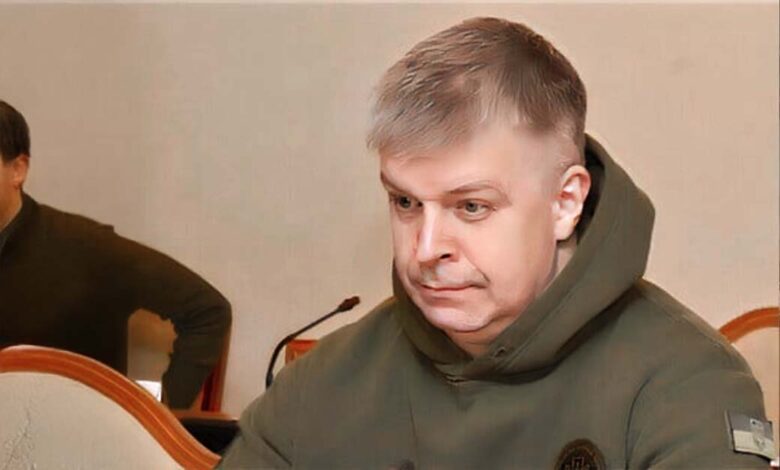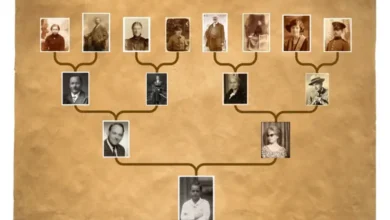Youth participation in terrorist attacks and rallies: military analyst Oleksiy Kopytko’s thoughts on risks and responsibility

Currently, two topics that directly affect the safety of citizens have become acute in Ukraine: mass demonstrations by young people against changes in the anti-corruption architecture of the state and new messages from the Security Service of Ukraine on preventing terrorist attacks in peaceful cities. Both processes — street activism and countering sabotage — remind us of the vulnerability of the Ukrainian rear in the conditions of war and raise an alarming question: how protected are citizens, particularly young people, in a country where the enemy tries to kill not only at the front.
It is with such an understanding of the topic appeals military analyst, former adviser to the Minister of Defense of Ukraine Oleksiy Kopytko, who publicly shared his thoughts on the risks of participating in protests during the war. He stopped short of judging the content of the protests, but focused on things he believes are vital to the participants — especially young people, who often act impulsively and underestimate the potential consequences of reckless behavior.
Oleksiy Kopytko expresses concern about security during mass gatherings in a period of full-scale war, when the risk of terrorist attacks remains high. He also draws attention not only to the facts that became known as a result of the activities of the Security Service of Ukraine, but also to the general culture of behavior in conditions of constant threat. According to him, some obvious things are for some reason ignored or bypassed in the public space, although parents, teenagers and participants of protest actions should first of all understand them.
The expert emphasizes that the Security Service of Ukraine has recently prevented at least two planned terrorist attacks. The first was a double explosion near the TCC in Mykolaiv, which was prepared by two citizens of Ukraine: one was a conditionally pro-Russian resident of the Kirovohrad region, the other was an eighteen-year-old boy from the Kyiv region who was looking for easy money. According to the plan of the executors, the first explosion was supposed to cause panic and gather people to help, and the second — to hit the rescuers, police and medics. Another SBU operation concerned a girl from Kyiv, who on July 23 was supposed to leave an explosive device with a capacity of one and a half kilograms in TNT equivalent in a cafe in the center of the capital. The device was intended for remote detonation by Russian operators in the evening, when the facility is most crowded.
The analyst notes that these are far from the first and, unfortunately, not the last examples of the work of the Security Service. According to him, such sabotage attempts continue regardless of whether there are mass protests or not. He emphasizes: these are not “horror stories” and not propagandistic fictions, because we are talking about real, recorded threats that require the attention of not only special services, but also the public, primarily parents and politicians.
Oleksiy Kopytko believes that today’s actions attract primarily emotionally excited young people who do not always have time to include critical thinking and assess the consequences of their actions. He calls to convey to them a number of simple but vital rules of conduct. First of all, do not take anything from the hands of strangers in crowded places, even if it is a transfer for volunteers, the military, families of defenders or homeless animals. He emphasizes that you should not agree either for money or for free – in any way at all.
He pays special attention to issues of interaction with the police. Kopytko notes: if the police politely asks to check your belongings before a rally or other public event, you should cooperate. If you ask impolitely, then you can respond accordingly, but you still need to cooperate, since all the participants of the events are in a state of tension. He emphasizes that such security measures do not concern the reasons that encourage people to go out on the streets – it is not about politics, but about saving lives.
Kopytko draws attention to the fact that in the current conditions it is impossible to guarantee one hundred percent safety during promotions. It is technically unrealistic to install metal detectors in every place or to conduct a total inspection of all participants. On the contrary, such measures can only increase vulnerability. It is impossible to completely suppress all enemy drones, but reducing the risks is realistic. He notes that caution should not depend on the specific reason for the gathering—tomorrow may be another rally, another issue, but the principles of security remain constant.
Oleksiy Kopytko summarizes: even with the best work of law enforcement agencies, no one removes the issue of personal responsibility. The conditions of war require not only courage, but also a cool head – above all in public space. And the enemy, who seeks to sow chaos and fear, remains the same, regardless of the political agenda.





